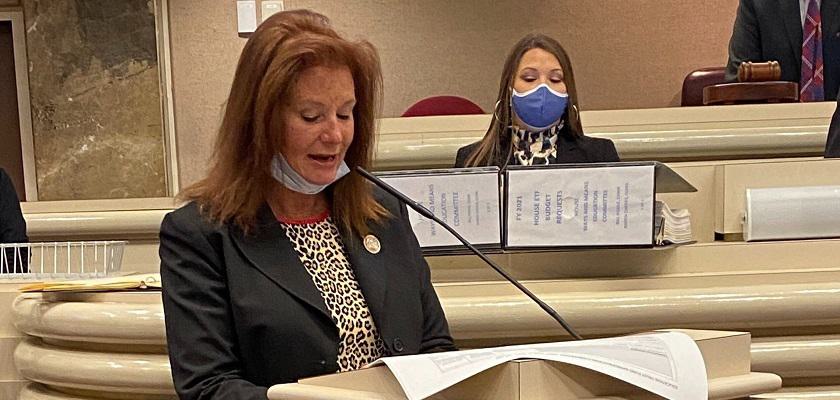Education continues to be a legislative priority for those in Alabama politics, including Gov. Kay Ivey and House Speaker-designate Nathaniel Ledbetter (R-Rainsville).
Concern for education in Alabama has risen in recent years, along with an increase in school funding for improvement programs and upgrades. The State Legislature also passed several laws, such as the 2019 Literacy Act and the 2022 Numeracy Act, to address areas where students fall behind.
Despite Alabama continually scoring low in education across the board, many in the legislature — including State Sen. Arthur Orr (R-Decatur), State Superintendent of the Alabama State Department of Education (ALSDE) Dr. Eric Mackey and State Rep. Terri Collins (R-Decatur), who chairs the House Education Policy Committee — believe intervention strategies simply need time to take effect.
"It's just a big ship to turn around, and it's a marathon, not just a sprint," Collins told 1819 News. "But we are doing good things, and we need to just continue to implement them to the best of our ability through the state department."
According to Collins, the legislature plans to focus on ensuring future teachers graduating from Alabama universities have sufficient training in the science of reading. For years, the state has funded additional programs to ensure this, but Alabama schools of education have not been consistently teaching the curriculum in a way that meets adequate standards, especially with the forthcoming requirements of the Literacy Act, Collins said.
This year, a study by the Barksdale Institute in Mississippi showed 66% of college courses and nearly 30% of college textbooks in Alabama were not fully aligned in teaching the science of reading.
"We actually paid and had Barksdale come in and do a study of how well our colleges of education are preparing teachers to teach the science of reading, and it came back very poor; very few were," Collins said. "They now recognize the problem and are working on that. So I think continuing to evaluate that. We've been putting a lot of money now, for about five years, into professional development to teach the science of reading to our teachers, and eventually, we need them to come out of college knowing that so we don't have to immediately place them into professional development. I think we will continue to work on implementation of some of the really good things that we do have in place."
The National Assessment of Educational Progress (NAEP) 2022 Nation's Report Card showing national education performance during the COVID-19 pandemic was released in October. While the state's fourth and eighth-graders struggled in mathematics and reading, Collins said she is pleased that Alabama third-graders showed a slight increase in proficiency.
Third-grade reading proficiency was the focus of the Literacy Act, which requires students to demonstrate sufficient reading skills for promotion to fourth grade. The Literacy Act requirement will not take effect until 2023 unless further delayed by the legislature. Ivey has pledged to veto any attempts to remove the holdback provision of the Literacy Act, which would cause students who do not meet the reading requirements to remain in the third grade.
"In third-grade reading, we were one of two states that actually had small gains; everyone else failed," Collins continued. "So, I was really pleased. And it was the attention to detail in that literacy act, the hard work that our students and our teachers were doing during COVID, so I am excited to see what we can do when we are not having COVID and using those same structured procedures that the Literacy Act calls for."
Collins also said the legislature might also look into the various ways in which schools receive funding.
School districts are primarily funded by an ad valorem tax of 10 mills — or $10 for every $1,000 of assessed local property valuation — for school funding or the equivalent from other local sources. According to Collins, the current funding method can leave more rural areas wanting.
In fiscal year 2020, for example, property taxes millage in Lowndes County yielded $112,000, while the yield in Mountain Brook and Birmingham City was $612,890 and $2.52 million, respectively.
"Ten mills in a Perry County looks different than 10 mills in a Mountain Brook, but that's where that equity comes in; it's still 10 mills, and everybody gets that base money because of that," Collins said.
"I'm not sure what all the governor has in mind, but I know Tennessee redid their funding formula for better equity, and I think we may see at least some looking at our funding formula because it's about 30 years old. We've kind of tried to work on it through line items, but working on the whole formula: I think we'll at least have a task force to look into that."
To connect with the author of this story, or to comment, email craig.monger@1819news.com.
Don't miss out! Subscribe to our newsletter and get our top stories every weekday morning









